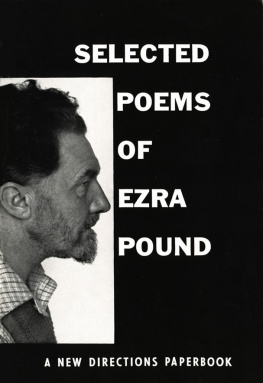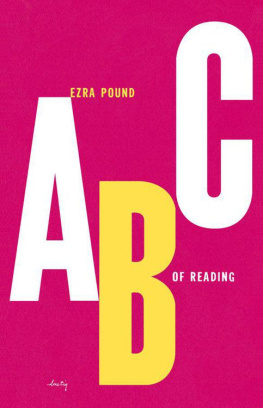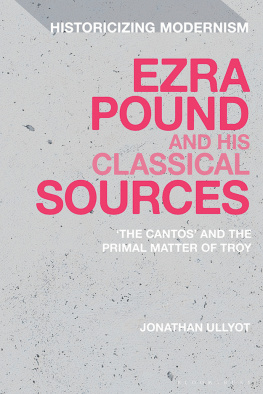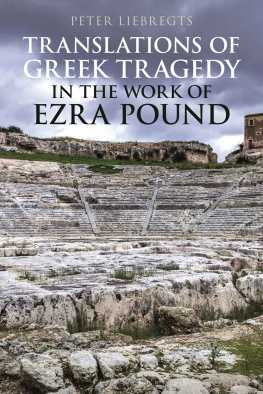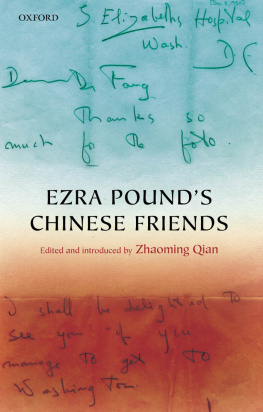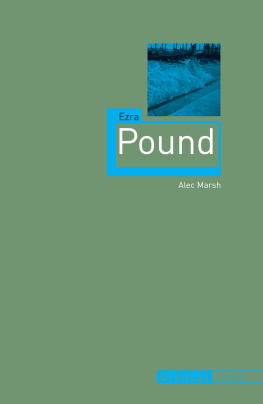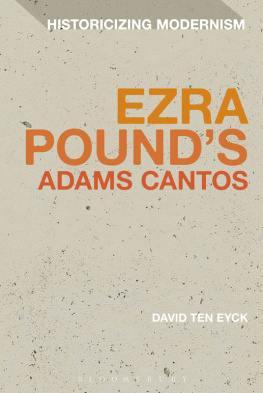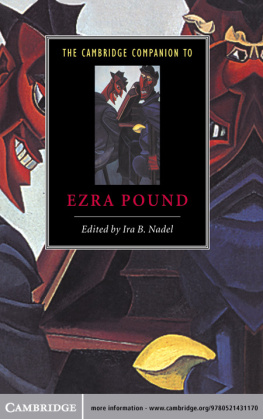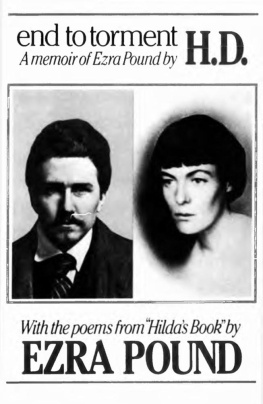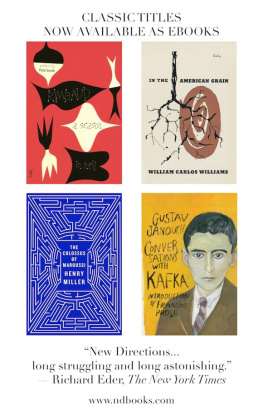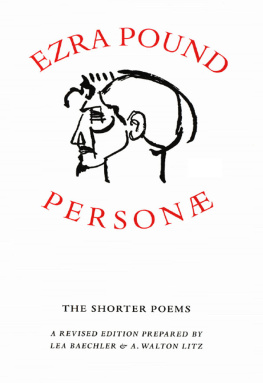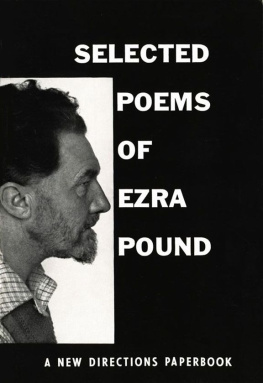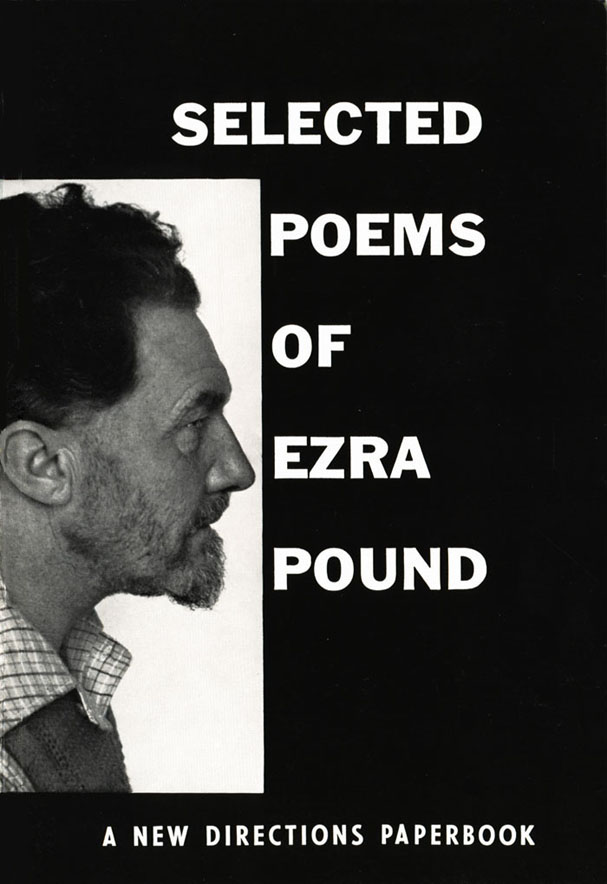BIOGRAPHY
E.P. Born, Hailey, Idaho, 30 Oct. 1885. Educ. U. and Hamilton. PhB. 05. M.A. 06. Published. 1908. 1908.
Venice; A Lume Spento. 1909, Mathews, London. Personae, Exultations. Thereafter some 40 volumes, in London till 1920. N. 1930 onwards, with Faber, London, and in U.S. 1918 began investigation of causes of war, to oppose same. 1918 began investigation of causes of war, to oppose same.
Lectured in the Universit Bocconi, Milan, 1931, on Jefferson and Van Buren. From 1932 continual polemic in two languages, moving from Social Credit to Gesellism. Obtaining imprint in Italy of Social Credit and Gesellite doctrines, comparing them with Catholic canonist theory and local practice. 1939 first visit to U.S. since 1910 in endeavour to stave off war. 1940 after continued opposition obtained permission to use Rome radio for personal propaganda in support of U.S. 1940 after continued opposition obtained permission to use Rome radio for personal propaganda in support of U.S.
Constitution, continuing after Americas official entry into the war only on condition that he should never be asked to say anything contrary to his conscience or contrary to his duties as an American Citizen. Which promise was faithfully observed by the Italian Government. E.P. (1949)
CINO
Italian Campagna 1309,
the open road Bah! I have sung women in three cities, But it is all the same; And I will sing of the sun. Lips, words, and you snare them, Dreams, words, and they are as jewels, Strange spells of old deity, Ravens, nights, allurement: And they are not; Having become the souls of song. Eyes, dreams, lips, and the night goes.
Being upon the road once more, They are not. Forgetful in their towers of our tuneing Once for wind-runeing They dream us-toward and Sighing, say, Would Cino, Passionate Cino, of the wrinkling eyes, Gay Cino, of quick laughter, Cino, of the dare, the jibe. Frail Cino, strongest of his tribe That tramp old ways beneath the sun-light, Would Cino of the Luth were here! Once, twice, a year Vaguely thus word they: Cino? Oh, eh, Cino Polnesi The singer ist you mean? Ah yes, passed once our way, A saucy fellow, but (Oh they are all one these vagabonds), Peste! tis his own songs? Or some others that he sings? But you, My Lord, how with your city? But you My Lord, Gods pity! And all I knew were out, My Lord, you Were Lack-land Cino, een as I am, O Sinistro. I have sung women in three cities. But it is all one. I will sing of the sun eh? they mostly had grey eyes, But it is all one, I will sing of the sun.
Polio Phoibee, old tin pan, you Glory to Zeus aegis-day, Shield o steel-blue, th heaven oer us Hath for boss thy lustre gay! Pollo Phoibee, to our way-fare Make thy laugh our wander-lied; Bid thy fulgence bear away care. Cloud and rain-tears pass they fleet! Seeking eer the new-laid rast-way To the gardens of the sun ..... I have sung women in three cities But it is all one. I will sing of the white birds In the blue waters of heaven, The clouds that are spray to its sea.
NA AUDIART
Que be-m vols mal N OTE: Anyone who has read anything of the troubadours knows well the tale of Bertran of Born and My Lady Maent of Montagnac, and knows also the song he made when she would none of him, the song wherein he, seeking to find or make her equal, begs of each preminent lady of Langue dOc some trait or some fair semblance: thus of Cembelins her esgart amoros to wit, her love-lit glance, of Aelis her speech free-running, of the Vicomtess of Chalais her throat and her two hands, at Roacoart of Anhes her hair golden as Iseults; and even in this fashion of Lady Audiart although she would that ill come unto him he sought and praised the lineaments of the torse. And all this to make Una dompna soiseubuda a borrowed lady or as the Italians translated it Una donna ideale.
Though thou well dost wish me ill Audiart, Audiart, Where thy bodice laces start As ivy fingers clutching through Its crevices, Audiart, Audiart, Stately, tall and lovely tender Who shall render Audiart, Audiart, Praises meet unto thy fashion? Here a word kiss! Pass I on Unto Lady Miels-de-Ben, Having praised thy girdles scope How the stays ply back from it; I breathe no hope That thou shouldst Nay no whit Bespeak thyself for anything. Just a word in thy praise, girl, Just for the swirl Thy satins make upon the stair, Cause never a flaw was there Where thy torse and limbs are met Though thou hate me, read it set In rose and gold. Or when the minstrel, tale half told, Shall burst to lilting at the praise Audiart, Audiart ... Bertrans, master of his lays, Bertrans of Aultaforte thy praise Sets forth, and though thou hate me well, Yea though thou wish me ill, Audiart, Audiart. Thy loveliness is here writ till, Audiart, Oh, till thou come again. And being bent and wrinkled, in a form That hath no perfect limning, when the warm Youth dew is cold Upon thy hands, and thy old soul Scorning a new, wryd casement.
Churlish at seemed misplacement, Finds the earth as bitter As now seems it sweet, Being so young and fair As then only in dreams, Being then young and wryd, Broken of ancient pride, Thou shalt then soften, Knowing, I know not how, Thou wert once she Audiart, Audiart For whose fairness one forgave Audiart, Audiart Que be-m vols mal.
VILLONAUD FOR THIS YULE
Towards the Noel that morte saison (
Christ make the shepherds homage dear!) Then when the grey wolves everychone Drink of the winds their chill small-beer And lap o the snows foods gueredon Then makyth my heart his yule-tide cheer (Skoal! with the dregs if the clear be gone!) Wining the ghosts of yester-year. Ask ye what ghosts I dream upon? (
What of the magians scented gear?) The ghosts of dead loves everyone That make the stark winds reek with fear Lest love return with the foison sun And slay the memories that me cheer (Such as I drink to mine fashion) Wining the ghosts of yester-year. Where are the joys my heart had won? (
Saturn and Mars to Zeus drawn near!) Where are the lips mine lay upon, Aye! where are the glances feat and clear That bade my heart his valour don? I skoal to the eyes as grey-blown mere (Who knows whose was that paragon?) Wining the ghosts of yester-year. Prince: ask me not what I have done Nor what God hath that can me cheer But ye ask first where the winds be gone Wining the ghosts of yester-year.
THE TREE
I stood still and was a tree amid the wood, Knowing the truth of things unseen before; Of Daphne and the laurel bough And that god-feasting couple old That grew elm-oak amid the wold.
Twas not until the gods had been Kindly entreated, and been brought within Unto the hearth of their hearts home That they might do this wonder thing; Nathless I have been a tree amid the wood And many a new thing understood That was rank folly to my head before.
THE WHITE STAG
I ha seen them mid the clouds on the heather. Lo! they pause not for love nor for sorrow, Yet their eyes are as the eyes of a maid to her lover, When the white hart breaks his cover And the white wind breaks the morn.
Tis the white stag, Fame, were a-hunting,
Bid the worlds hounds come to horn!SESTINA: ALTAFORTE
L OQUITUR :
En Bertrans de Born. Dante Alighieri put this man in hell for that he was a stirrer up of strife. Eccovi! Judge ye! Have I dug him up again? The scene is at his castle, Altaforte.
Papiols is his jongleur. The Leopard, the device of Richard Cur de Lion.
I
Damn it all! all this our South stinks peace. You whoreson dog, Papiols, come! Lets to music! I have no life save when the swords clash. But ah! when I see the standards gold, vair, purple, opposing And the broad fields beneath them turn crimson, Then howl I my heart nigh mad with rejoicing.

